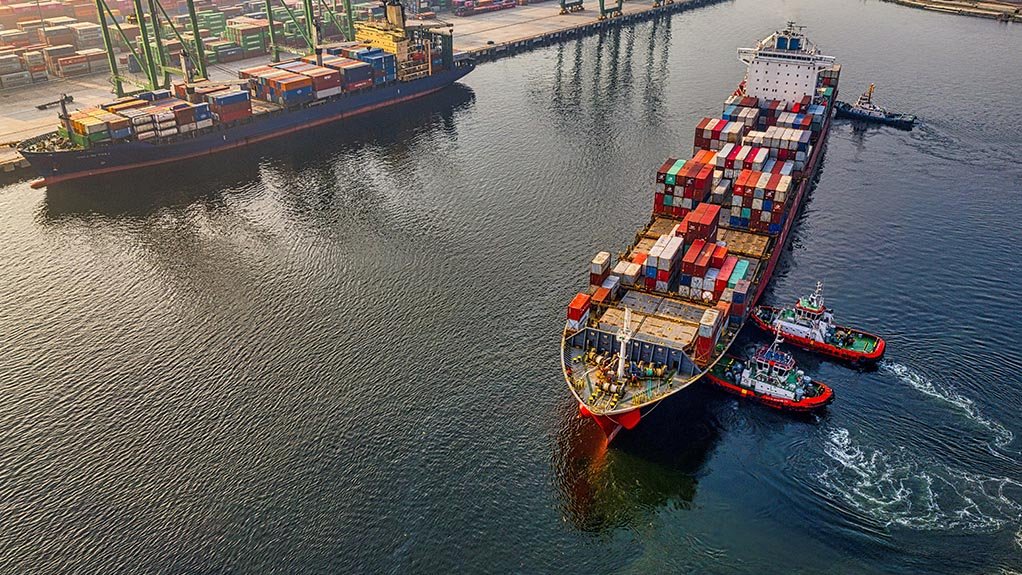In recent weeks, container ships have been bypassing the congested and delay-ridden Cape Town harbour to berth at the Port of Port Elizabeth in Gqeberha and the Ngqura (Coega) port, reports the South African Association of Freight Forwarders (SAAFF).
But the influx of vessels has created massive congestion off the Eastern Cape coast, with some 46 000 containers stuck outside the two ports.
Meanwhile, 79 vessels and 61 968 containers remain stuck outside the Durban port as of Friday last week.
This is according to the latest data from the SAAFF. Durban and Port Elizabeth are now among the top seven most congested ports in the world, according to global shipping data site Linerlytica.
Vessels have been waiting 215 hours (nearly nine days) and 32 hours to enter Port Nqura and the Port Elizabeth port, respectively. Meanwhile, vessels are waiting 227 hours to enter the Durban port, the SAAFF reports.
The backlog at the Cape Town port, however, has been cleared, says Transnet.
South African ports have been marred by congestion and delays due to equipment failures, a lack of maintenance on port infrastructure, and adverse weather. An estimated R7-billion worth of goods currently cannot berth into ports.
The congestion at the Eastern Cape harbours has raised alarm, as half of the country's automotive manufacturing output is situated in the province, which also has large pharmaceutical and other manufacturing companies.
"Vessels are arriving 30 days late. This threatens the viability of manufacturing businesses already dealing with load shedding. We are at the mercy of ports and the rail system," said chief executive of the Nelson Mandela Bay Business Chamber, Denise van Huyssteen.
The chamber, which represents more than 700 businesses within the area, is particularly concerned about Port of Port Elizabeth's port booking system, adding that previous interventions by Transnet have led to greater inefficiencies at the port.
Van Huyssteen says local businesses have been forced to transport their goods to Walvis Bay in Namibia and Maputo in Mozambique due to the port crisis, adding, "We are worried about future contracts and the thousands of jobs that are linked to that."
Meanwhile, frozen food and dry produce exporter and importer Hume International operations and logistics director Roy Thomas said international companies are changing their scheduling times to bypass South African ports and discharge cargo in the Far East.
He also warned that South African consumers will be increasingly hard hit by rising prices due to the port problems.
From Friday, shipping giants like Mediterranean Shipping Company (MSC) and Maersk will levy congestion surcharge fees on containers because of the delays at local harbours.
"The congestion surcharges [to be implemented in December] will cost $200 or $400 on average per container. With the surcharges and the port crisis, it will cost more to get supply chains moving as more businesses will not be able to meet their commitments [...] Delays will also lead to increased demand for certain products," said Thomas.
Transnet interventions
Meanwhile, terminal operator Transnet admitted to delayed maintenance and underinvestment in infrastructure at multiple ports for years, with the current backlog at the Durban port projected to only be cleared in February next year.
With increased congestion and delays, the logistics company said they plan to install new equipment in 2025 and 2026 at Cape Town and Durban Ports.
On Tuesday, Transnet said the backlog at the Cape Town port was cleared as it now has on average 20 rubber-tyred gantry cranes (RTGs) in operation, from 15 previously. Two more RTGs may be added after maintenance repairs and seven second-hand machines should be delivered next month.
Additional berths have also been added to the Cape Town and Durban Port to cope with congestion.
EMAIL THIS ARTICLE SAVE THIS ARTICLE
To subscribe email subscriptions@creamermedia.co.za or click here
To advertise email advertising@creamermedia.co.za or click here











